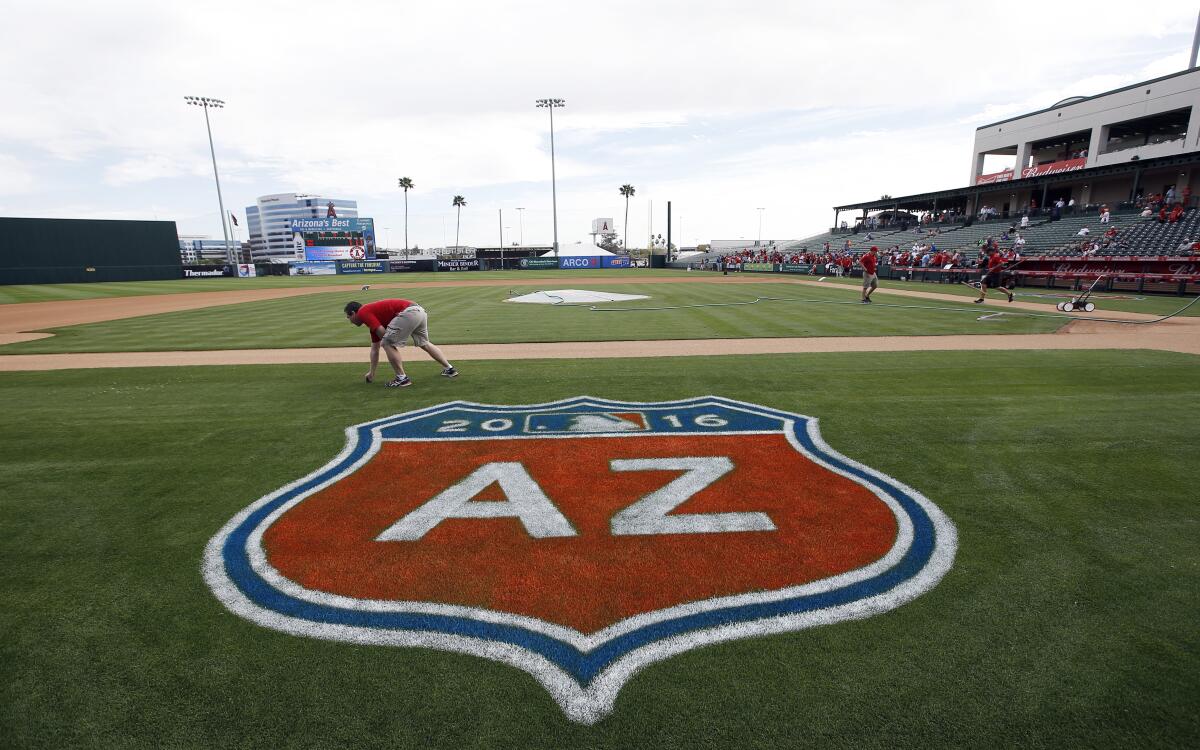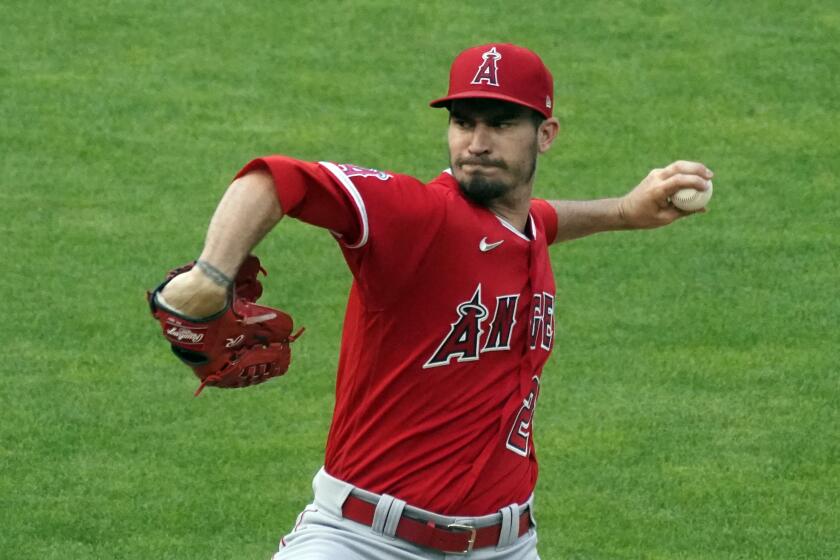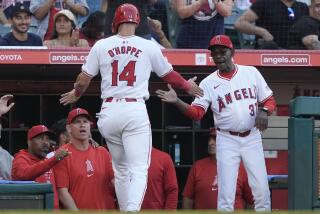Angels minor leaguers describe ‘deeply disturbing’ conditions that cause some to quit

- Share via
MINNEAPOLIS — In his role as executive director of Advocates for Minor Leaguers, Harry Marino has learned to rate the way players are treated within each of Major League Baseball’s 30 organizations on a grim spectrum.
“Really bad to truly terrible,” he said.
When it came to the Angels, who had several distressed minor-league players reach out to the organization this season, the stories Marino and his colleagues heard put the club at the worst end of that scale.
“[They] were deeply disturbing to us, as I’m sure they were to anyone who read them,” Marino said in a phone call Friday, adding, “It’s really disturbing in terms of what it reveals about how the Angels feel about their minor-league players.”
Marino’s organization released on Thursday a collection of anonymous quotes from Angels minor leaguers describing the dire living conditions many of them faced this year, including stories of players sleeping in their cars, on makeshift beds in team clubhouses, or in overcrowded houses and hotels that they struggle to afford.
On Friday, two Angels prospects — Kieran Lovegrove of Class AA Rocket City and Shane Kelso, who retired after playing part of the season in Class A because of the financial burden he said he faced — spoke to ESPN about their situations and criticized the club.
“By no means is this an Angels-only problem,” Marino said. “But yeah, this is pretty extreme.”
Angels general manager Perry Minasian released a statement Friday afternoon vowing to address the situation.
“What is being reported is unacceptable, and we will look into it and address it,” Minasian said.
Marino said public recognition of the problem is only the first step, calling on the Angels and other clubs to enact immediate changes to help their minor-league players, from taking care of housing to implementing improved year-round pay.
“These are not outlandish requests,” Marino said. “Minor-league baseball players are not asking to be treated glamorously. They’re asking to receive the bare minimum, really; to be treated with a modicum of dignity and respect.”
Advocates for Minor Leaguers was formed last year by current and former players — Marino played in the Baltimore Orioles’ and Arizona Diamondbacks’ systems — concerned about the treatment of minor leaguers, who do not have a union. Marino said the organization has found that most minor leaguers make less than $15,000 per year and get paid only seasonally, usually going unpaid during spring training and extended spring training.
It also is up to most players to find housing during the season. In the past, host families in minor league communities helped. But with that option not currently available for most players because of the pandemic, they’ve been forced to scramble for other arrangements.
“Major league teams would rather have their players have housing insecurity — have no place to sleep, sleep in the clubhouse, sleep in their cars, pay more than they’re making per two weeks on a hotel or apartment — than take on that responsibility themselves,” Marino said.
A self-described ‘streaky’ pitcher, the Angels’ Andrew Heaney found rhythm and confidence during a seven-inning outing against the Minnesota Twins.
“The absence of host families has revealed how these teams prioritize their own players and care about their own players. It’s really disturbing.”
Marino also noted the mental health toll such obstacles place on players.
“It’s really problematic,” he said. “These things need to be fixed immediately.”
So where would Marino like to see the Angels start?
“Teams need to start taking care of housing their minor league players during the season, full stop,” he said. “Secondarily, teams need to stop forcing players to provide periods of work for free.”
Marino called extended spring training, where minor-leaguers train when they haven’t been assigned to one of their club’s affiliates, “the most egregious” example of players working without pay. He noted that the San Francisco Giants, Boston Red Sox and New York Mets changed their policies and provided back pay to players for those periods.
“The Angels need to do that as soon as possible,” Marino said.
Marino said his organization has longer-term ideas that they think will improve players’ quality of life. But they want to see the most basic of requests met first.
This week’s stories from Angels minor leaguers were the latest troubling reminder of how far some teams have to go.
“Just because something has always been a certain way doesn’t mean it always will be a certain way,” Marino said. “We’ve seen that across a range of issues in our culture in the past few years. And I’m confident that this system of treatment for minor league baseball players is going to change. It needs to change. And players will not be satisfied until it changes. The owners have a real problem on their hands if they are committed to the old way of doing things.”
More to Read
Go beyond the scoreboard
Get the latest on L.A.'s teams in the daily Sports Report newsletter.
You may occasionally receive promotional content from the Los Angeles Times.








